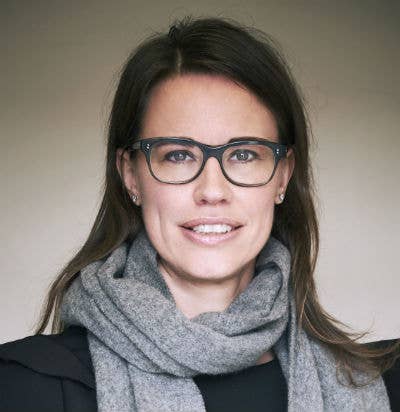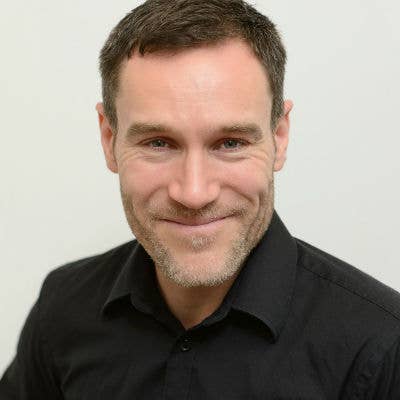Paradox: "If a game can't be played for 500 hours we probably shouldn't be publishing it"
Paradox Interactive's management team on moving beyond "premium plus DLC" to a more flexible future
There was a 12-month period not so long ago when Paradox Interactive launched a dozen different games. Rather than being regarded as an example of its high productivity, though, the Paradox management team looks back on that period as something of a nadir - the result of drinking one too many glasses of its Kool-Aid.
Speaking in a closed room session with the press at PDXCon recently, VP of business development Shams Jorjani explained it as a failure built on unexpected success. TaleWorlds Entertainment's Mount & Blade had performed well in 2008, despite it falling outside the Paradox comfort zone of grand strategy. This in turn led to the company taking a chance with Arrowhead's Magicka in 2011, which "became such a huge success" that a future in which Paradox published a multitude of independent games each year seemed entirely plausible.
"We want to make great games for our fans, and we can't do that if we don't charge something for development"
"You sign a game, and it takes 12 to 24 months before it comes out," Jorjani said. "Magicka was 2011, so in 2013, 2014 you saw all of these wonky games, where the ideas were not necessarily bad, but we as an organisation maybe hadn't matured to the point where we could execute well. And we didn't have the maturity to kill them off earlier in the process."
The many stumbles that categorised that period prompted introspective discussion between Jorjani, CEO Fred Wester, and others on the management team. What, exactly, should the Paradox portfolio look like?
"We had this vision of people buying a Paradox game without knowing what the game was; that 'Paradox' should be a guarantee for a type of game experience," Jorjani said. "If we can get somebody to pay us $40 without knowing what the game is, that's when we've succeeded. So that's when we refined our core game pillars - what the game is, the Paradox secret sauce - and tried to streamline and have a portfolio that is consistent."

Jorjani believes that all Paradox games fall into three broad genres: the strategy titles for which it is best known, but also management and role-playing games. With strategy, Jorjani said, Paradox already has some of the world's best studios in-house; with the other two categories it has been necessary to cultivate relationships with "best-in-class" third-party developers - Colossal Order's Cities: Skylines in management, for example, or Obsidian's Tyranny in role-playing games. In the time since that misguidedly busy year, this more focused approach has allowed Paradox to thrive, and fill a gap in the market vacated by publishers chasing AAA glory.
"I used to go around at [trade] shows and say, 'We'll sign anything close to what Will Wright and Peter Molyneux did in the late Nineties'," Jorjani said. "For the first year people were like, 'Ha ha', but I kept saying it and in the third year they started coming back with actual pitches."
He added: "Some of the big publishers that used to do a lot in PC gaming have now all moved on to bigger things, and we've landed in this very comfortable middle-class of gaming that's been dead for a very long time. That leaves a lot of doors open. Some stuff that used to be interesting for publishers is not big enough for them any more, but it is absolutely big enough for us. Cities: Skylines is a very good example of that."
"If you want to make a Skyrim type experience you can't start making that day one. You need something else first"
Cities: Skylines was a major hit for Paradox, breaking company records when it launched, and reaching five million sold in March 2018. Colossal Order's game was also a key contributor to its Q1 results, which perfectly illustrated the way in which Paradox has changed over the last five years, and pointed towards where it will head in the years to come.
Paradox increased its quarterly profits by 270% over the prior year, and doubled its revenue, despite Haemimont's Surviving Mars being the only completely new release during the period. While Surviving Mars certainly played its part, the bulk of the release schedule was expansion packs for Stellaris, Cities: Skylines, Hearts of Iron IV and Europa Universalis IV. The most recent of those games launched two years ago, the oldest three years before that, and yet all continue to receive premium expansions that drive company growth.
One journalist present pointed out that Crusader Kings 2, which was first released in February 2012, and now has more than $300 worth of DLC - a contentious point for some gamers, who feel overwhelmed by the cost of entry now, and are perhaps accustomed to receiving more post-release content for free.

"We want to make really great games for our fans, and we can't do that if we don't charge something for the development," replied Ebba Ljungerud, who will replace Fred Wester as CEO later this year. "That's the base of it, and then you can discuss margins, and you can discuss this and that, but if we don't make money then we're not going to be able to make the games.
"So for us it's not so strange that we actually charge people for extra content. And yeah, you can say with Crusader Kings 2 it's a lot of money over the years, but it's also a game with a lot of hours, with a lot of gameplay."
"I'd argue go out and find any other game that can involve this many hours of gameplay at the base cost, never buying any more DLC," Jorjani added. "I think we're in the top 1% of the industry in terms of the value we provide.
"We have to deal with the issue of people being conditioned by how other games in the industry work. And the conditioning is, if you don't get all of the content then you're missing out on something, which is not true in our games. We need to get better at bundling and presenting stuff on our product pages, so that when you come in you're not inundated with a torrent of DLC and you feel like you're getting gouged."
"I don't think we have anything against a free-to-play grand strategy game. We just have no idea how that would do"
And Paradox must be fully engaged with these issues, chief product officer Mattias Lilja pointed out, because individual games with six years' worth of DLC is not a problem it can expect a platform like Steam to solve. Going forward, Paradox will be moving further and further towards experiences very much like Crusader Kings 2, and further away from experiences like Magicka.
"If a game can't be played for 500 hours we probably shouldn't be publishing it - as a general rule," Jorjani said. "But we will still probably publish games with shorter play times, because Rome wasn't built in a day. If you want to make a Skyrim-type experience you can't start making that day one. You need something else first, and then you move on to that."
Of course, there is more than one way to monetise a 500-hour experience, and Paradox is open about looking well beyond premium games and DLC to inform where it goes from here. One suspects that the portion of Paradox's audience that would bristle at the idea of free-to-play would outnumber those who take issue with $300 worth of DLC for one title, but these more open and flexible business models are influential in terms of the company's thinking.

"If I'd gone to Henrik [Fåhraeus, game director of Crusader Kings 2] and said that in 2018 we'd have $300 worth of DLC, he would have slapped me across the face," Jorjani said. "Today I could walk in and say we'll have $30,000 worth of content in six years and people wouldn't smack me. They'd say, 'Hmmm, how are we going to do that?'"
Mattias Lilja added that one of the main reasons that the Paradox portfolio is dominated by "premium plus DLC" is simply "because it works". Indeed, not only is the company looking at other models, "we're not particularly attached to [premium plus DLC] either."
"If we could simultaneously have different ways of paying that would make people happy, we would do that," he said. "But we don't have the data, and we don't know how that would play out... I don't think we have anything particularly against a free-to-play grand strategy game. We just have no idea how that would do."
Upon leaving the room, it was difficult to see past Lilja's comments as the most telling of all. Paradox has spent the last five years moving towards a structure where it has a smaller, more focused catalogue of games, all of which effectively operate as services - only under a financial model more at home in the industry of five years ago. Whether that will always be the case remains to be seen, but Jorjani was clear about where the real growth in the games industry is now happening.
"If we look at the industry as a whole, the premium business model is shrinking, that part of the business is shrinking" Jorjani said, earlier in the conversation. "That doesn't mean that you can't drive or grow [within it] - we can probably do that for many more years - but as whole, our focus as a company is growth, and what's growing is free-to-play.
"We know that our games don't perhaps translate that well to free-to-play, so the interesting thing is where the convergence point is with the hybrid models we've seen; where there is a premium, starting price-point, but there are other ways to charge for content without upsetting everyone. That's the real challenge for the next five to ten years."
